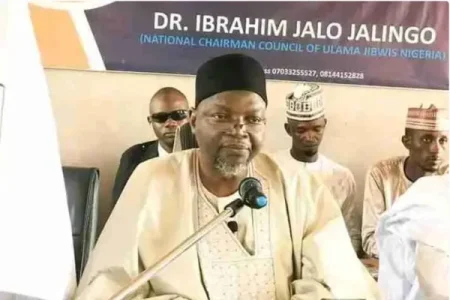
Nigerian cleric Sheikh Ibrahim Jalo Jalingo defends death for apostasy in viral Facebook post, sparking outrage from human rights groups and Islamic scholars. Critics say his remarks incite violence and contradict constitutional freedoms. The incident highlights tensions between religious doctrine and Nigeria’s commitment to pluralism and human rights.
A Nigerian Islamic scholar has stirred widespread controversy after endorsing capital punishment for Muslims who renounce their faith, a statement that has drawn sharp condemnation from across the country.
Sheikh Ibrahim Jalo Jalingo, who leads the Council of Ulama, made the remarks in a Facebook post on April 10. In it, he argued that Islamic tradition permits — and even mandates — the death penalty for those who abandon the religion. He backed his position with selected religious texts, claiming the punishment is consistent with both the Qur’an and Hadith.
The cleric also lashed out at those who disagreed with him, using derogatory language that critics say was inflammatory and inciting. His post quickly spread online, sparking outrage among civil society groups, legal experts, and fellow Islamic scholars who called his interpretation extreme and dangerous.
“This kind of rhetoric undermines religious tolerance and puts lives at risk,” said a Northern Nigeria-based scholar, who declined to be named for fear of retaliation.
Human rights organizations have also urged authorities to review the statement for potential incitement to violence, pointing out that Nigeria’s constitution guarantees freedom of religion for all citizens.
As public reaction intensifies, the debate has highlighted the ongoing struggle between traditional religious authority and constitutional protections in Nigeria’s diverse society.




